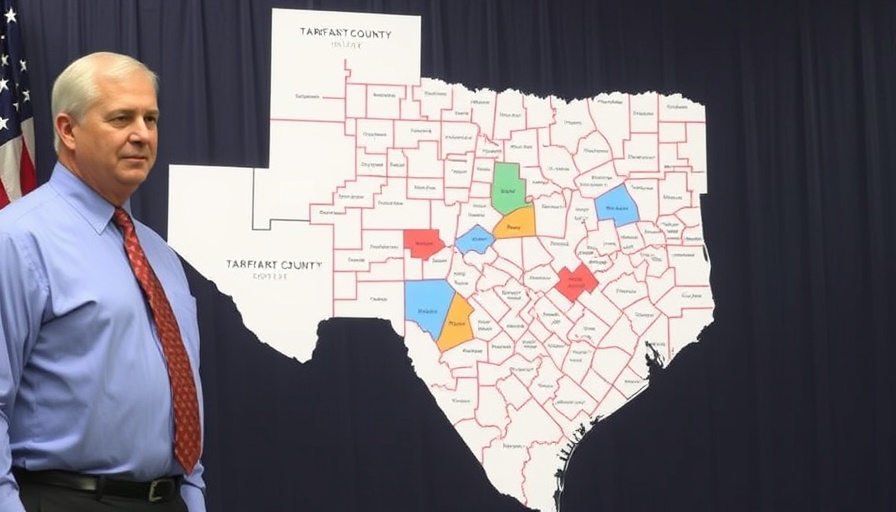
The Controversy Behind Tarrant County's Redistricting
A recent lawsuit filed against Tarrant County officials has sparked significant debate regarding the newly adopted district maps for county commissioners. Residents argue that these maps are a deliberate attempt to undermine the voting power of Black and Latino communities, raising urgent concerns about fairness and representation in local government.
Understanding the Legal Position
The lawsuit claims that the revised precinct lines, which were approved in a contentious 3-2 vote by county commissioners, intentionally discriminate against specific racial demographics. According to attorney Chad Dunn, the process undertaken by the commissioners not only violates federal laws including the Voting Rights Act but also embodies systemic animosity towards marginalized citizens in Tarrant County.
Political Implications and Local Governance
Tarrant County Judge Tim O'Hare has been at the center of this controversy, asserting that the new mapping reflects the county's conservative majority and is designed to strengthen Republican influence. "I truly believe that conservative governance is the best way to run a country, a state, and a county," stated O'Hare, emphasizing his vision for future governance. Critics, however, view this as a blatant power grab that disregards the implications for equitable representation.
The Role of Commissioners Courts in Texas
In Texas, each county operates under a commissioners court structure, comprised of a county judge and four elected commissioners. Their pivotal role mirrors that of city councils at a more localized level, overseeing budgetary allocations for essential services such as public safety and infrastructure. The dynamics within these courts can significantly influence local policy, making redistricting an intensely scrutinized activity.
Comparative Perspectives: Other States and Their Redistricting Challenges
Similar legal battles are occurring nationwide as communities contest redistricting efforts that they feel disenfranchise voters. For instance, in other parts of the country, courts have intervened when maps have been deemed to favor one political party over another. This issue underscores a crucial aspect of electoral politics: the fight for fair representation knows no geographical boundaries and continues to be a contentious topic in American politics.
The Broader Impact of Redistricting
Redistricting doesn't just impact local races; it can have ripple effects on state and national elections. It raises questions about voter engagement, turnout, and trust in the electoral process. Residents in Tarrant County and beyond are becoming increasingly aware of how these boundaries shape their political landscapes and the allocation of resources, urging them to advocate for transparency and equality.
What Lies Ahead: Future Predictions and Community Response
As the lawsuit progresses through the legal system, community members are rallying for change. Many are urging the county to revisit the drawing of these maps to ensure they uphold the principles of equality and representation. Expect heightened civic engagement from local advocacy groups as they mobilize constituents to demand a more fair and just electoral process.
Call for Advocacy and Empowerment
The situation in Tarrant County is a reminder of the vital importance of active participation in local governance. Informed citizens can genuinely influence outcomes by staying engaged and advocating for their rights. Residents can partake in future discussions regarding redistricting strategies, offering their insights to shape a more inclusive political framework.
Ultimately, the pursuit of equitable representation is not just a legal battle; it is a civil rights issue that resonates deeply within our communities. Now is the time for residents to voice their opinions and stand united for fair representation.
 Add Element
Add Element  Add Row
Add Row 



 Add Row
Add Row  Add
Add 


Write A Comment